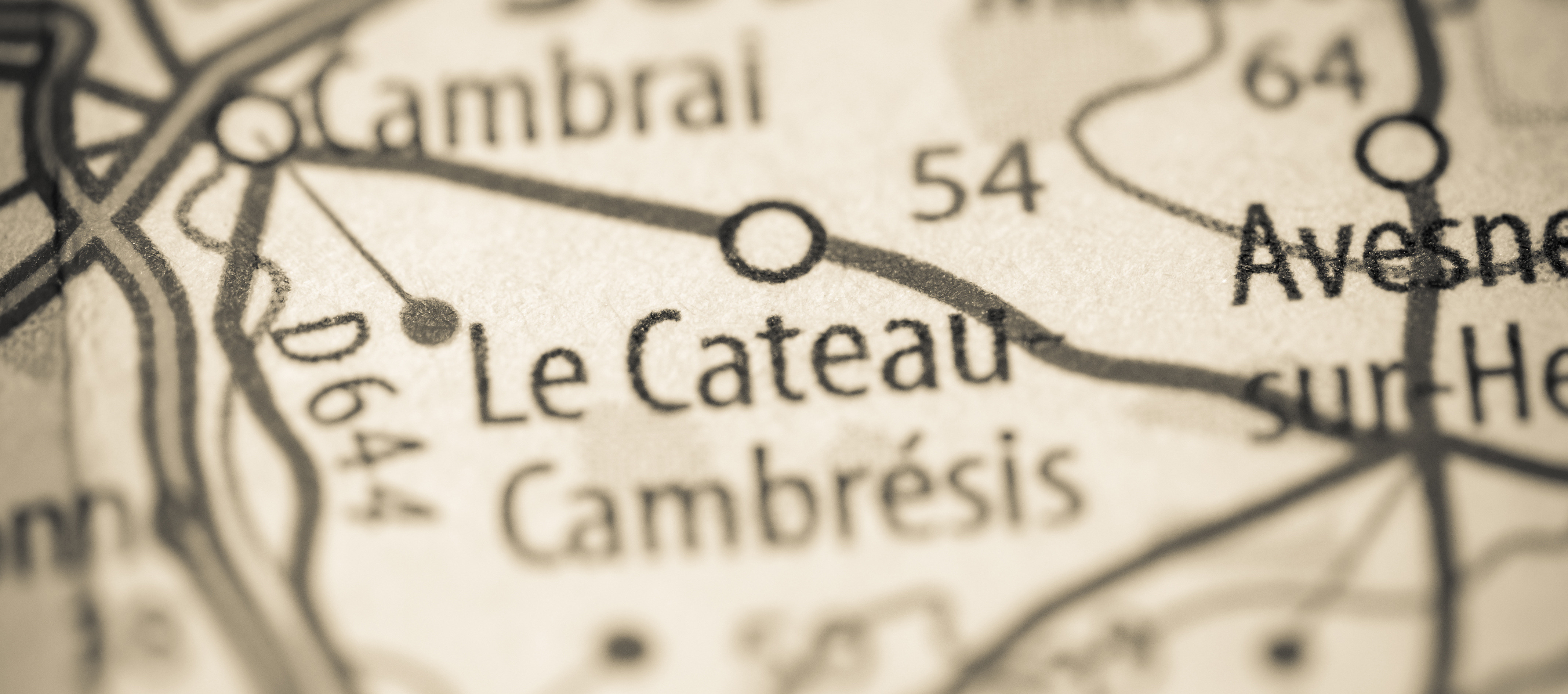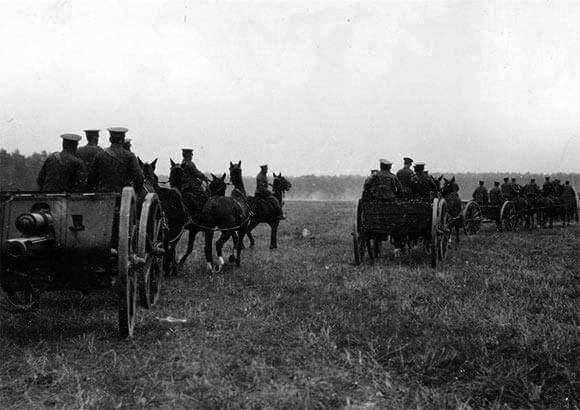The Battle of Le Cateau
 Map showing Le Cateau in France
Map showing Le Cateau in FranceOn the 18th August 1914, at the outbreak of the Great War, XIV Brigade Royal Field Artillery left their Barracks in Colchester to join the British Expeditionary Force in France. They fought in the Battle of Le Cateau on the Western Front on the 26th of August 1914.
The British Expeditionary Force and the French Fifth Army had retreated following their defeats by the German First and Second Armies at the Battle of Charleroi in Belgium (between the 21st - 23rd August) and the Battle of Mons (23rd of August).
 Battery of British Royal Field Artillery 18 pounder field guns moving up: Battle of Le Cateau on 26th August 1914 in the First World WarSource: British Battles
Battery of British Royal Field Artillery 18 pounder field guns moving up: Battle of Le Cateau on 26th August 1914 in the First World WarSource: British BattlesAgainst overwhelming odds, General Horace Smith-Dorrien of the British II Corps took the controversial decision not to continue with the retreat of the British Expeditionary Force from Mons, but to stand and fight a delaying action. German Officers were stunned by their battlefield skills, which brought the German attacks to a standstill time and again. For their valour in these actions three Victoria Crosses were awarded to an officer and two men of 37th Field Battery Royal Field Artillery.
The German Emperor Wilhelm II in his frustration allegedly described the British forces as a “Contemptible Little Army”. The battle was remembered as a “Gunners’ Battle” and for the brave actions of those men who became known as the “Old Contemptibles”. A tablet in Westminster Abbey was unveiled in their honour by the late Queen’s mother.
Losses were high on both sides. British casualties totalled 7,812 British, which included Major Raymond England, Battery Commander of 88th Battery XIV Brigade.
Against all odds General Smith-Dorrien had achieved his objective of delivering a 'stopping blow' to the Germans and the BEF were able to continue its retreat to Saint-Quentin. The German Forces also suffered heavy losses and were delayed in their planned advance on Paris.